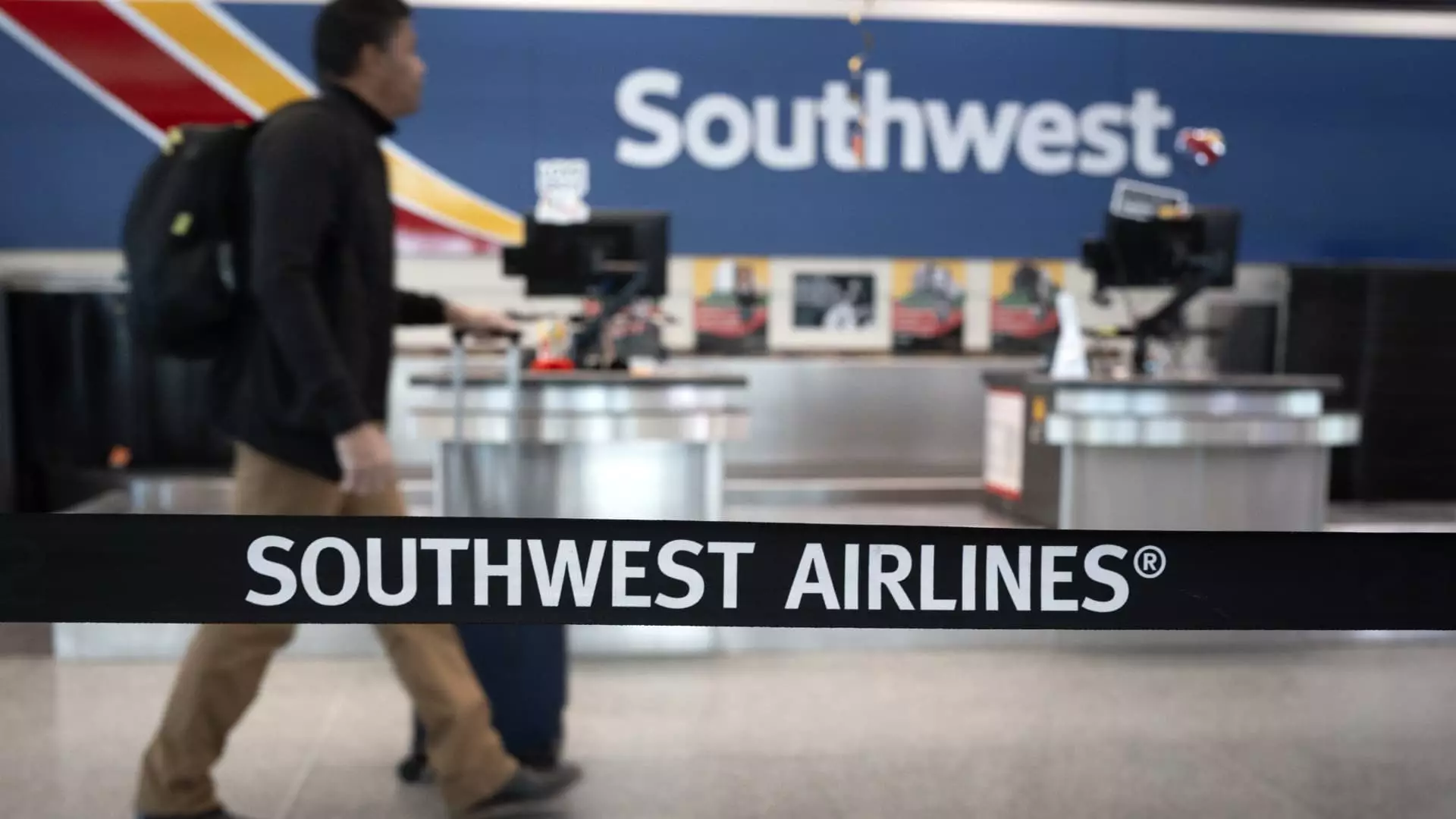The recent announcement from Southwest Airlines marks a pivotal moment in the airline industry, particularly for a company that has long prided itself on customer-centric policies. The end of their “two bags fly free” policy is not just a trivial adjustment but a seismic shift in approach. For over 50 years, this policy has set Southwest apart from its competitors, creating a brand identity synonymous with value and simplicity. Travelers fondly recall the days when checking in without worrying about baggage fees felt like a breath of fresh air, but the realities of modern-day economics are putting those sentiments to the test.
As the airline sector grapples with mounting financial pressures, Southwest’s decision embodies an alarming trend: when it comes down to profits versus customer loyalty, it appears the bottom line is still king. Baggage fees accounted for a staggering $7.3 billion in revenue across U.S. airlines in the previous year alone, illustrating how deeply this shift is influenced by financial imperatives. With pressure mounting from shareholders like Elliott Investment Management, which holds notable influence over corporate strategies, the curtain has been drawn back to reveal the disheartening truth: customer convenience is often sacrificed for capital gain.
A New Business Model Emerges
In conjunction with the changes to the baggage policy, Southwest is also making a major pivot towards a more complex business model. The introduction of basic-economy tickets and the phasing out of open seating illustrates a broader trend in which airlines are emulating the practices of their larger competitors. These new fare categories will undoubtedly attract a new segment of budget-conscious travelers, but at what cost to the experience of loyal customers who have come to cherish the companies that break the mold?
Southwest’s open-seating arrangement was a badge of honor, providing a unique if chaotic boarding experience that set it apart. Many anxious travelers reveled in the chance to secure prime seats through clever check-in strategies. Now, however, the shift to ticketed seat assignments fosters a sense of uniformity familiar to those who prefer the predictability of traditional airlines like Delta or United.
Beyond seating, the move to larger overhead bins and the promise of convenient in-airport check-in processes may alleviate some immediate concerns for travelers. However, one cannot overlook that these efforts feel like band-aids on a much larger systemic issue—an airline taking steps towards commodifying what was once a straightforward travel experience.
Customer Impact and Loyalty at Stake
The implications of these evolving policies are multifaceted; they place the burden of adaptation squarely on the shoulders of the travelers who have traditionally found refuge in the Southwest experience. While the company promises that certain loyal customers—like those in the highest tiers of the Rapid Rewards program—will still enjoy free check-in, one must wonder how long it will be before these privileges erode in the relentless pursuit of profit.
The challenges facing Southwest also raise questions about the efficacy of their long-term loyalty programs. With big-ticket investments in upgraded amenities and services, the value proposition for frequent flyers may shift, posing a risk to brand loyalty. If elite status no longer guarantees a hassle-free travel experience, what’s to stop loyal customers from exploring alternatives? As evidenced by the myriad social media reactions to the policy changes, the already tenuous ties between brand loyalty and customer satisfaction are more fragile than ever.
The Road Ahead for Travelers
As travelers prepare for these new changes, questions linger. How will the introduction of new fee structures alter travel habits? Will customers become more keenly aware of what they are being charged for, leading them to question the overall value proposition of air travel? What will happen to the airline’s reputation as more travelers are turned off by rising costs and reduced service levels?
Most importantly, the essence of what it means to fly Southwest is under threat. No longer will customers seamlessly fly with their two bags without a second thought. The looming baggage fees may encourage people to reconsider how they travel, leading to a rise in carry-on baggage or even a preference for other airlines altogether. Thus, as the airline enters a new chapter, the paramount challenge remains clear: Can Southwest balance its need for increased revenue while retaining the loyalty of customers who have, until now, viewed their baggage policy as an iconic symbol of their brand?


Leave a Reply